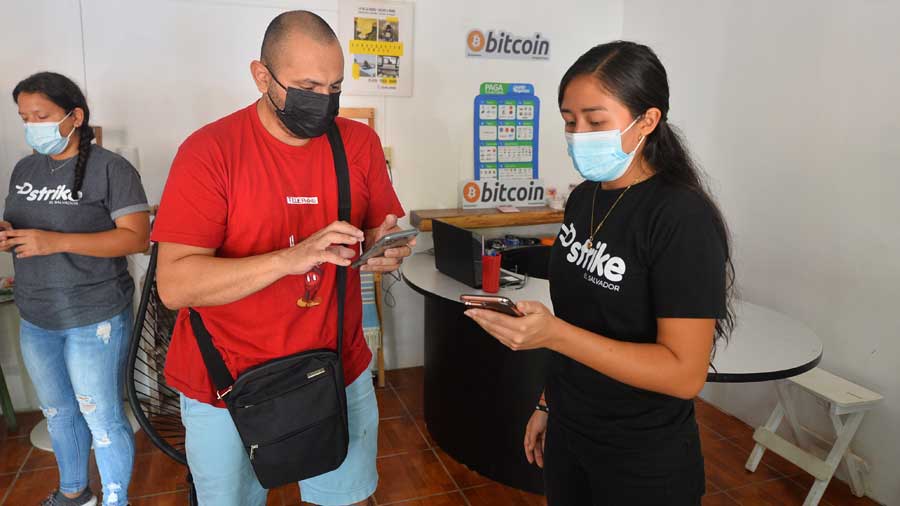
The Central Reserve Bank (BCR) published a regulation of 56 articles so that it is the banks, cooperatives and savings and credit companies that provide the service for the use of Bitcoin. This document does not detail the use of digital currency in daily commerce.
The Bitcoin Act regulation that hundreds of businesses have been waiting for to understand how they will accept digital currency in their businesses ended up being a regulation that shifts all responsibility for its use to banks, cooperatives and savings and credit societies.
Since Tuesday afternoon, the Central Reserve Bank (BCR) published the document of 56 articles on the website with the exception that it is regulations that are in consultation, ie it can receive comments before its application.
The document does not clarify the mandatory nature of Article 7 of the Bitcoin Act which says that every business “must” accept Bitcoin as a form of payment, nor does it explain how businesses will have to use it.
You may be interested in: Expert in economics warns of the serious consequences of bitcoinization
In essence, the document delegates to financial institutions to be the ones to offer digital bitcoin wallets, exchange houses, payment service providers and even the installation of ATMs or ATMs where you can convert bitcoin to the dollar.
Their way of operating with digital currency is pretty much the same as how they handle fiat money, that is, legal and backed money.
David Gerard, a British writer expert on digital currency who has been closely following the implementation of Bitcoin in El Salvador said yesterday in an article about this regulation that many of these articles look like a standard text copied from previous regulations. Even the handling of ATMs and the $ 1,000 transaction travel requirement set out in FATF provisions are similar to the provisions for fiat money.
The regulations even require banks to provide a monthly statistical summary to the Superintendency of the Financial System, the Consumer Ombudsman and the Central Bank on complaints and non-compliance about the use of digital currency services.
Economists: “It’s a rebound effect, not economic growth”
“Much of this looks like standard text copied from previous regulations,” the writer notes.
The difference with this law is that the bank or cooperative that is interested in providing its convertibility services through the Bitcoin currency will have to make a request of No Objection to the Superintendence of the Financial System for this it will have to present an affidavit certifying that you meet all the requirements to provide these services.
The Salvadoran Banking Association (Abansa), which brings together 11 banks installed in the country, has not commented on the regulations published by the BCR.
The only statement issued by the association on June 11 said that banks will continue to receive deposits and give loans in dollars.
Meanwhile, rating agency Fitch Ratings said on June 24 that the adoption of Bitcoin as a legal tender increases the regulatory, financial and operational risks of financial institutions, including the potential to violate international standards against money laundering (AML) and terrorist financing.
You may be interested in: Use of Bitcoin if it will involve collection of commissions
Mario Gómez, an expert in information systems and data analysis, said that just as the regulations are drafted, it seems that normal money is regulated and not bitcoins, which in fact was born as a decentralized currency so that no bank can control it. .
Guardian of Bitcoin and ATMs
Some of the new aspects that are introduced in the regulations are the figure of “Guardian of bitcoin”, which has been defined as a company dedicated to the provision of custody services on behalf of third parties, bitcoin or means of access. to these bitcoins in the form of cryptographic keys.
It also adds other concepts such as “digital exchange house” that will be contracted for the purchase and sale of bitcoin and must apply local regulations and international best practices.
ATMs in which citizens could convert their bitcoins to dollars would run at the expense of financial institutions.
“The installation, operation, quality and security of the operations of bitcoin ATMs for dollars and vice versa is the responsibility of the obligated subjects of these Standards,” Article 23 of the regulations states.
The Government had previously announced that it would install ATMs. In fact, two of them from the Athena brand already work.